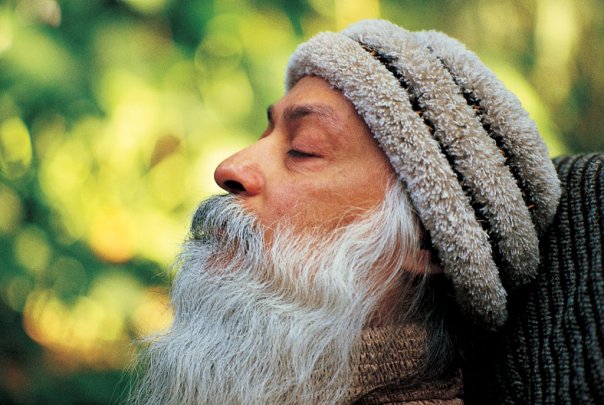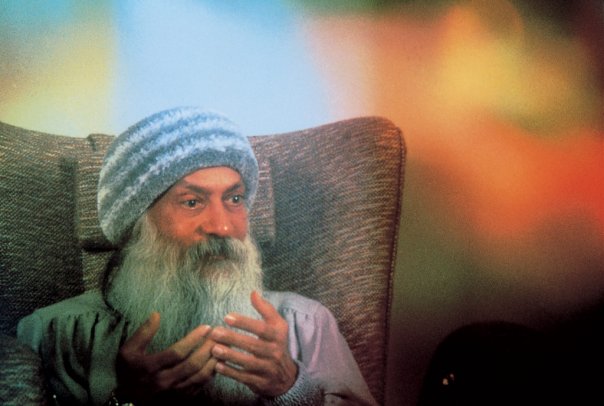Osho trích dẫn về sự ăn năn
- Chúa Giêsu’ từ ăn năn chỉ đơn giản có nghĩa là 'trở lại'; nó không có nghĩa là ăn năn. ‘Quay vào’ nó có nghĩa là, 'Trở về nguồn', nó có nghĩa là, 'Trở lại bản thể của chính bạn'. Đó là tất cả những gì thiền định là: trở về nguồn, returning to the center of the cyclone, returning to your very being.
- Mind is basically indecisive, and awareness is basically decisive. So any act out of awareness is total, full, without repentance.
- Repentance is ugly. It is like playing with your wound, fingering your wound. It is unnecessary, and not only unnecessary but harmful — the wound may become septic, and fingering your wound is not going to help it heal either. If you have fallen, just know that you have fallen, with no guilt, with no repentance. There is no need to go anywhere to confess it, just knowing it is enough. And knowing it, you are helping your awareness to grow. Less and less will you fall, because knowing will become more and more strong in you.
- You don’t need any salvation. All that you need is a little shaking up so you can wake up. You don t need priests. You certainly need awakened people, because only the awakened ones can shake those who are fast asleep and dreaming. And humanity needs to be free of guilt, free of the idea of sin, free of the idea of repentance. Humanity needs innocence, and the priests don’t allow you to be innocent; they corrupt your minds. Beware of the priests. They are the people who crucified Jesus — how can they interpret Jesus? They are the people who have always been against the Buddhas — and the irony is that finally they become the interpreters.
- Return to the original source, come back to your deepest core of being. Repentance is returning back; it is one of the greatest spiritual turnings.
- When you repent, you repent about a certain act. Your repentance is always in reference to certain acts. Chúa Giêsu’ repentance is not about certain acts, it is about your being. The way you have been has been absolutely wrong. You may not have been angry — still you have been wrong. You may not have been full of hatred — still you have been wrong. You may not have possessed much wealth — still you have been wrong. It is not a question of what you have done; it is a question of how you have been. You have been asleep, you have been unconscious. You have not lived with an inner light; you have lived in darkness. When they say, “Repent!” they mean repent for the whole way you have lived up to now, the way you are. It is not a question of asking forgiveness from somebody — không, not at all. It is just a returning. The word ‘repent’ originally meant ‘return’. In Aramaic, which Jesus and John used as their language, ‘repent’ means ‘return, return to your source; come back to your original being’.
- Repentance will always come if your decision is partial. And no decision lived out of conclusions can ever be total, because the conclusion has been carried from the past, and the situation is new — how can it fit totally? You have to respond again out of your newness of this moment, then the response is total. And total response is joy — whether it fails or succeeds, is irrelevant. In its totality it has succeeded already, and there will be no repentance.
- People start indulging in their repentance, confessions. They may even exaggerate — this has been my feeling. Saint Augustine’s book CONFESSIONS seems to be an exaggeration; he seems to be indulging in it. The very idea of committing so many sins seems to be appealing. In India, Gandhi’s autobiography seems to be an exaggeration. He goes on talking and talking about his sins, it seems he is enjoying it. And now psychologists say that there are people who exaggerate their sins because then, against that background, they become great saints. Because they have not left ordinary sins, they were such great sinners, and now they have become such great saints! The distance is vast and the revolution great.
- You be yourself from the very beginning. Then you will never repent. Act out of the total situation, then there is no repentance. Whatsoever you could do you did. Then you can move with no scars. Let your life be a life of total understanding, that’s all I would like to say to you. Don’t ask for specific formulas, I have none. I have only a general attitude — the light of understanding, the fragrance of understanding. And whatsoever happens in it is good, is virtuous.
- Life would like you to enjoy. Life would like you to celebrate. Life would like you to participate so deeply that there is no repentance for the past, that you don’t remember the past, because every moment you go more and more deep — every moment life becomes more and more beautiful, more orgasmic, a peak experience, and by and by, when you become attuned to the peak, that becomes your abode. That’s how an enlightened man lives, he lives totally and moment to moment.
- If you are REALLY aware, you will drop repentance because you know the foolishness of it. You have repented many times. Nothing happens,
- In Christianity one word has been very much misunderstood, and that is “repent.” The original Hebrew word for “repent” means return, not repent. That is the only repentance — if you return! But just by being translated as “repent” the whole thing is lost. Mohammedans have a similar word, toba. Toba means return. Nó có nghĩa là “go back to the source.” Toba also looks like repentance; that too is not repentance. Jains have a word: they call it pratikraman; that means return.
- To be afraid of something that happened in the past is stupid because nothing can be done about it. Whatsoever happened, happened. Now there is no way to undo it. One has simply to relax and accept it. There is no point in feeling guilty, no point in feeling repentance. It is all useless.
- Nếu bạn thực sự cảm thấy tức giận là sai, sau đó quên đi quá khứ. .Bây giờ bất cứ khi nào tức giận ở đó, Vẫn cảnh giác. Đó là sự ăn năn thực sự. Vẫn cảnh giác. Tôi không nói đừng cầu xin sự tha thứ của mọi người. Hỏi — nhưng không ăn năn. Không phải vì tức giận mà vì sự không biết của bạn. Bạn có thể thấy sự phân biệt?
-
Mind is a disturbance. It distracts you from your own source, from your own wisdom. Meditation puts the mind into silence and suddenly for the first time you start hearing inner advice. And the miracle is, it is always right, it is never wrong. So you are never guilty and never feeling repentance. And when each and every step is right your life starts settling into a deep accord.
Mind is a disturbance. It distracts you from your own source, from your own wisdom. Meditation puts the mind into silence and suddenly for the first time you start hearing inner advice. And the miracle is, it is always right, it is never wrong. So you are never guilty and never feeling repentance. And when each and every step is right your life starts settling into a deep accord.



